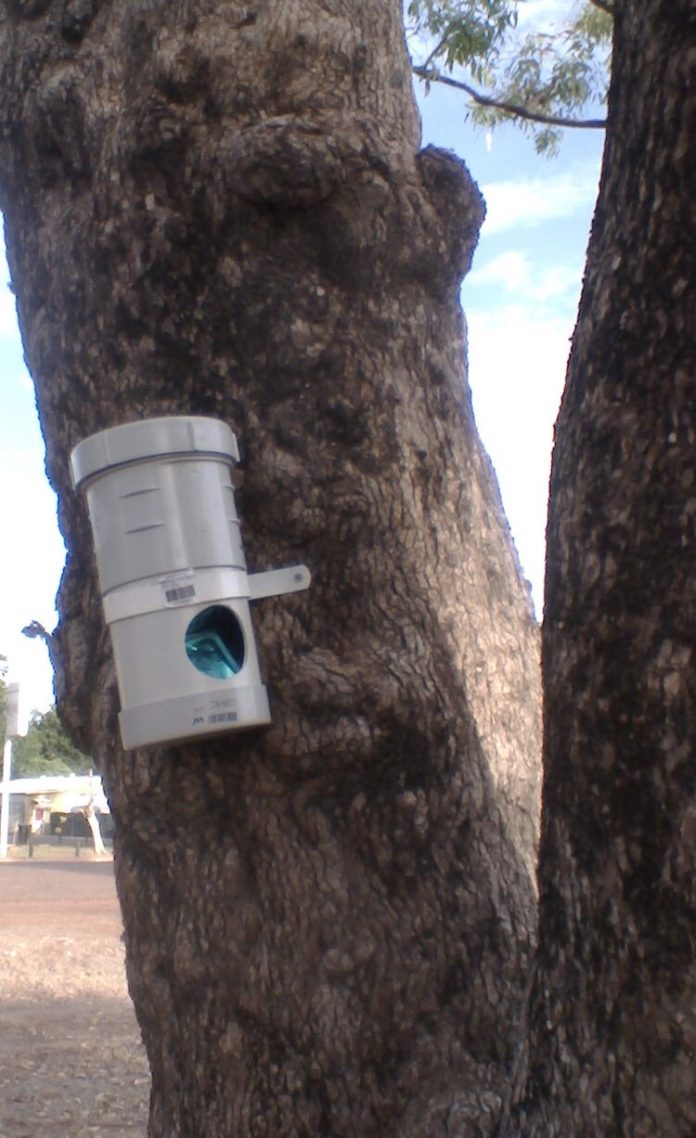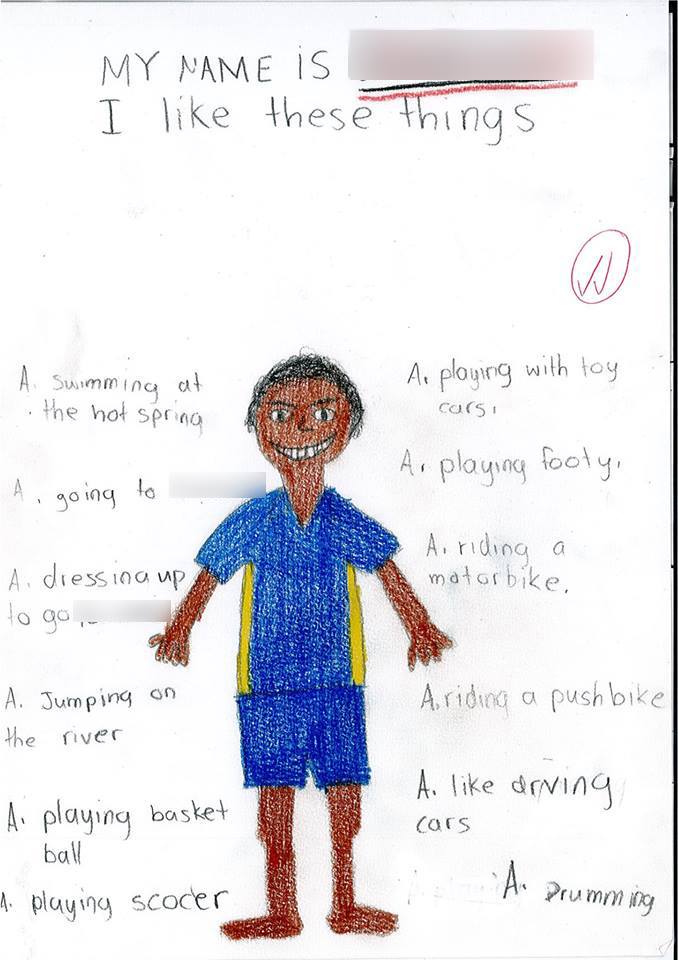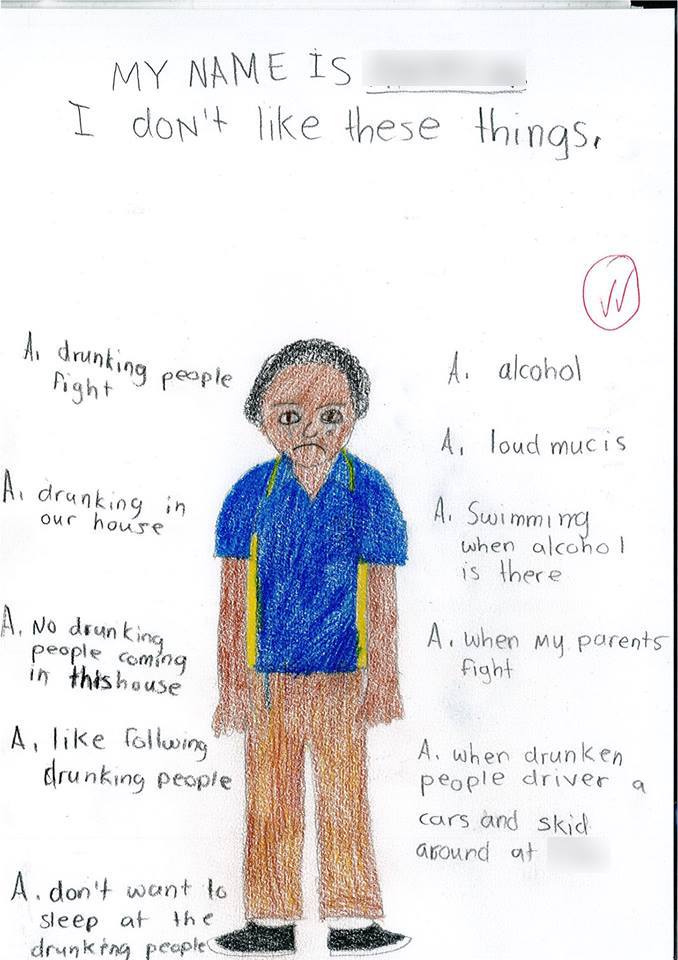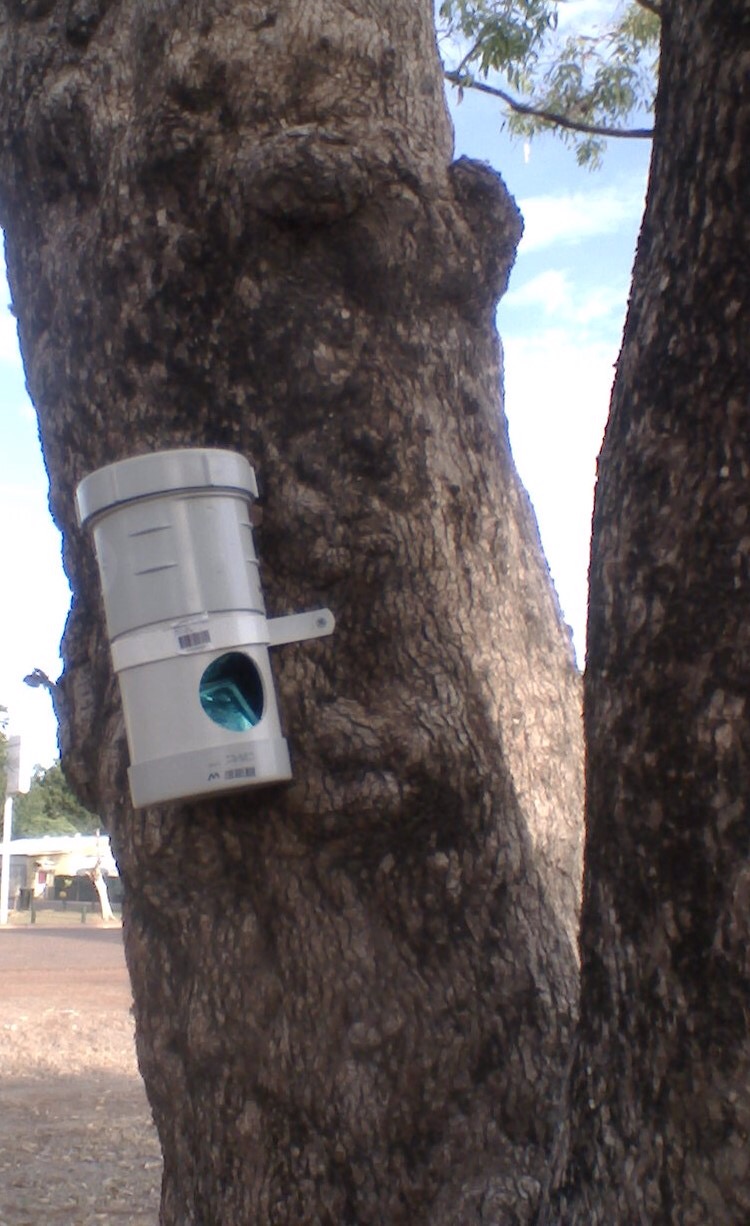From an anonymous contributor
Below is an image which depicts what life is like for an Aboriginal boy in remote NT, as described by an Aboriginal boy. It’s like Bill Leak’s cartoon, except it’s not funny, it’s not ‘punching down’ or even up, the characters are not fictional, and it has a lot more drunken adults. Skip to it if you wish, but here is the context.
In September last year, I was still working in a remote school in the NT and had recently submitted an article to XYZ about Bill Leak’s ‘What’s his name then?’ cartoon, which was in the news at the time. You can read the essay here and see the cartoon here.
I was having a lot of trouble with a few of the boys in my class. They were constantly cursing one another, or ‘teasing’ as they say in Kriol. I could not stop them, it was happening every day for weeks on end, and was disrupting the class every day. The boys were using a form of cursing based on a name taboo. It occurs in Aboriginal culture of the top end, and in other parts of the world. The name of a person is thought to hold power over that person. A shaman who knows a person’s true name is said to be able to have control over that person. The boys didn’t know any of that, of course. (I asked them). They just knew that if you say another boy’s name, or his father’s name, in a certain way, it angers that boy and hurts his feelings. In other words, it works, and it works well. They call each other ‘gay’ sometimes, too, but nowhere near as often. The name curse riles up other boys better than that.
The boys’ not knowing about this old superstition is akin to a child holding up two fingers behind another child when a photo is taken. They have no idea that it signifies the cuckold’s horns, an old insult, nor even what a cuckold is. They just think it’s cheeky and funny for some reason.
Mind you, for months I had no idea why saying the name of a boy’s father, or the boy’s own name, was ‘teasing’. Only when I came across a copy of J.G. Frazer’s The Golden Bough by chance did I find out. That book has plenty of good information on name taboos in different cultures in the world.
Now, I thought about a solution to the continual cursing the boys were doing. It ended in tantrums and fights sometimes. I thought I ought to get them thinking about what they like and don’t like. I thought if they were more conscious of what they liked and did not like, they might think more before cursing someone else.
I set the main perpetrators aside from the rest of the class and told them to think about things that they like. I wrote the things they told me on a whiteboard. I then drew an outline of a boy’s body on paper, and told them to fill it in with colours, and add a head with a smiling face, because this picture was about things they like. Then they wrote down the things that I’d elicited from them on their paper. Here’s an example. It’s usual boy stuff.
The next day I sat the boys down again and asked them this time to tell me what they did not like, drawing a sad face this time instead of a happy face. A., who is 12, got quite into the task. After writing down the things I’d elicited and written on the whiteboard, he went off on his own, put his head down, and kept writing. He didn’t want to be disturbed. He handed it back to me when he was done. This is what he doesn’t like:
I suddenly had a lot more sympathy for this boy, whom I’d thought of as simply mean-spirited to his classmates. According to what he’d written, he seemed to be surrounded by drunks constantly, and had almost no power to do anything about it. I thought of all those who criticised Bill Leak’s cartoon, saying that he had no right to ‘punch down’; i.e., criticise people who were in a worse social situation than him.
What baloney! So you don’t like Bill Leak telling the truth? How about hearing it from a 12-year-old boy, then? No boy deserves to be surrounded by drunks, to have his sleep taken away from him by noisy drunks, or to be endangered by drunk drivers.
Drunkenness is a huge problem in the Aboriginal communities I’ve seen. It wrecks everything. It makes a person into a worse person. Going teetotal is a solution. There are several dry communities. I lived in one a couple of years ago, and it seemed a lot more functional than the one in which A. lives. But going teetotal can be hard to do, and hard to police, depending on where the community is located.
Drunks are more likely to have unprotected sex with strangers. Syphilis is the next big problem in the NT. It’s skyrocketing. They fasten boxes of condoms in trees near drinking spots hoping to slow down the spread of syphilis, and give them out at the clinic. But drunks are a lot less likely to be circumspect about things like that, and more likely to take risks.
Drunks are also more likely to get violent. Domestic violence (i.e., wife-beating) and family violence is a lot higher among aborigines than other groups.
Drunks are also more likely to have a car crash. The kids of drunk women have foetal alcohol spectrum disorder (FASD), which nobody ought to have to live with.
And those bastards down south thought Bill Leak ought to censor himself! Why? Because maybe the problem will go away faster if he doesn’t tell people about it? Was that approach working before Bill’s cartoon was published?
Well maybe those critics ought to switch places with A. Or with J., perhaps:
I am very glad that Bill Leak no longer has to worry about a lawsuit for drawing a cartoon. I am also very glad that his cartoon memorably etched this problem into the minds of people in southern states, whether they liked it or not, and challenged them. Good on you, Bill!
Editors’ note: These images have been altered to protect the identity of minors.














